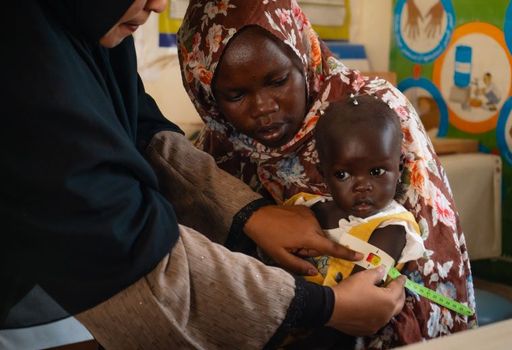People carrying out humanitarian work around the world are being killed in unprecedented numbers while funding collapses leaving millions of civilians at risk, the UN and aid agencies have said as they marked the World Humanitarian Day.
Sudan has become one of the deadliest for aid workers anywhere in the world with more than 120 humanitarian workers killed since civil war broke out in April 2023, according to the UN.
"Their deaths are a stain on our collective conscience and a stark reminder of the growing dangers faced by those who deliver life-saving aid," Luca Renda, the UN humanitarian coordinator in Sudan, said in a statement on Tuesday.
According to the Aid Worker Security Database, violence against aid workers increased in 21 countries in 2024 compared with the previous year, with government forces and affiliates the most common perpetrators.
In Africa, the highest number of major attacks were in Sudan with 64, South Sudan with 47, Nigeria with 31 and DR Congo with 27, the database reported.
As for killings, Sudan, where a civil war is still raging, was second to Gaza and the West Bank with 60 aid workers losing their lives in 2024.
A record 383 aid workers were killed worldwide in 2024, the United Nations said, with state actors being the most common perpetrators of the killings. The figure was up by a third compared to the year before.
“I can safely say that we haven't seen such a worrying trend as we are seeing now. We see the whole humanitarian system close to collapse if there is no consensus about protecting it and supporting it,” Raquel Ayora, General Director of MSF Spain, told TRT Afrika, citing the killing of MSF staff members during Ethiopia's civil war in 2021 and Israel's atrocities in Gaza.

“We see a very concerning trend of states, state officers, promoting narratives and discrediting the organizations that are doing their best to provide life-saving services to civilians in terms of conflicts, accusing them of being part of the conflict,” she added.
The World Humanitarian Day is marked each year on August 19 to commemorate humanitarian staff who have been killed or injured in the line of duty and to honor those who continue to deliver life-saving aid despite the risks.
“The day was set aside to raise awareness on the work that humanitarians do around the world. Humanitarians have to be committed to the principles of humanity, impartiality and independence. This guides their work wherever they are operating,” Aliyu Dawobe, spokesperson for the International Committee of the Red Cross in Nigeria, told TRT Afrika.
The organization in on the frontline providing assistance to civilians affected by a recent wave of terrorist attacks in north-eastern Nigeria where over 3.7 million people are facing hunger and over eight million have been displaced.
He said there has been a clear disrespect for the rules of war that protect both civilians and humanitarian workers in situations of conflict. In 2018, two of his colleagues were abducted and eventually killed by a militant group.
“As long as armed actors don't understand well the humanitarian laws, this will continue to happen,” Dawobe told TRT Afrika.
Most of the aid workers killed worldwide were national staff serving their communities who were attacked while on the job or in their homes, according to the UN.
It said humanitarian efforts across the world have experienced historic funding shortfalls, with 40% less funding compared with the same time last year.
“Unfortunately dwindling finances has made many international humanitarian actors to leave north-east Nigeria leaving us with no option but to absorb the pressures of people that are affected,” Dawobe said.



















